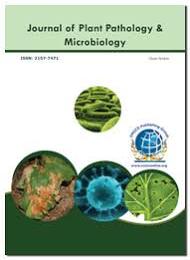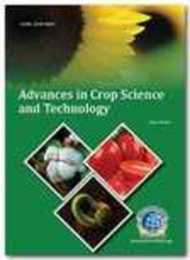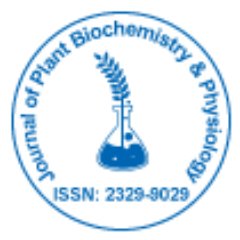Theme: Genome Based Breeding and Genome Evolution Technologies on Plants
Plant Genomics 2019
Conference Series llc Ltd invites Plant Genomics fraternity across the world for our upcoming event during August 14-15, 2019 at Auckland, New Zealand. We are proud to announce that Conference series organized eight editions of the Plant Genomics conferences successfully worldwide and ninth edition is going to be organized soon. Plant Genomics conferences includes prompt keynote presentations, Scientific Sessions, including Oral and Poster presentations, Exhibition Stalls, B2B Meetings, Networking and collaborations.
Plant Genomics Conferences brings together a unique and international mix of experts, researchers and decision makers both from academia and industry across the globe to exchange their knowledge, expertise and research innovations. Plant Genomics 2019 is organized with the theme “Genome Based Breeding and Genome Evolution Technologies on Plants”.
The main intention of organizing Plant Genomics conferences is to discuss the latest innovations, technology practices, upcoming challenges solutions in plant molecular biology and its associated fields.
Conference Series llc Ltd organizes a conference series of 1000+ Global Events inclusive of 300+ Conferences, 500+ Upcoming and Previous Symposiums and Workshops in USA, Europe & Asia with support from 1000 more scientific societies and publishes 700+ Open access journals which contains over 30000 eminent personalities, reputed scientists as editorial board members.
About Auckland
Auckland is place to over 1.2 million people and home to multiple galleries and museums; it is the fastest growing area in the nation. A coastal city, set amidst beautiful harbours, Auckland is a perfect sophisticated city living with open air magnificence that makes it one of the most attractive destinations throughout the world. This enables you to stay where you choose – close to one of the beautiful north shore or eastern beaches, in the west near native bush, or in the city itself. The largest city in New Zealand and the world’s biggest Polynesian area and it includes contemporary lifestyle, cultural heritage, sporting achievements, financial quality and colourful multi-cultural uniqueness, set in pristine marine-based environment. Auckland City lies between the Hauraki Gulf of the Pacific Ocean towards the east, the low Hunua Ranges towards the south-east, the Manukau Harbour towards the south-west, and the Waitakere Ranges and little ranges to the west and north-west. Notoriety for extraordinary craftsmanship and design makes Auckland a customer's heaven. Inside the city zone you'll discover creativity and pizazz wherever you look. Nearby theatre and unrecorded music gigs are another chance to find the imaginative side of New Zealand culture. The city enjoys climate and diverse landscape ranging from golden beaches, bush clad hills, native forest and 50 beautiful Hauraki Gulf Islands. The name Auckland’s lifestyle is ranked amongst the best in the world. Auckland accommodation gives something to everybody, with inns, extravagance lodges, spending explorers, self-providing food motels, and that genuinely kiwi involvement in homestays, cultivate stays. A few lodging offer incapacitated access facility; others give free Wi-Fi web or selective living arrangement.
Why to attend???
With members from around the world focused on learning about Plant Genomics and its advances; this is your best opportunity to reach the largest assemblage of participants from the Plant Science and Genomics community. Conduct presentations, distribute information, meet with current and potential scientists, make a splash with new advancements and developments, and receive name recognition at this 2-day event.
Target Audience:
-
Plant Genomics Students, Scientists
-
Plant Genomics Researchers
-
Plant Genomics Faculty
-
Agricultural Colleges
-
Plant and Agriculture Associations and Societies
-
Business Entrepreneurs
-
Training Institutes
-
Software developing companies
-
Manufacturing Agricultural Devices Companies
Track 1: Plant Genomics
Plant Genomics is the part of molecular biology working with the structure, function, evolution, and mapping of genomes in plants. Genomics is the study of genes, their expression and their activities, the role played in biology. Genomics is a branch of genetics that is concerned with the sequencing and analysis of organism's genome. Genomics aids us in maintaining the large number of database that assists us to study genetic variation.
Related Conferences 7th Annual Congress on Plant Science February 28-March 01, 2019 Osaka, Japan; 12th World Congress on Plant Biotechnology & Agriculture April 08-09, 2019 Prague, Czech Republic; 7th Asia Pacific Plant Biology and Plant Science Congress May 01-02, 2019 Seoul, South Korea.
Related Societies American Society of Plant Biologists (ASPB), Australian Society of Plant Scientists (ASPS), Argentinean Society of Plant Physiology (SAFV), American Society of Agronomy (ASA), African Crop Science Society (ACSS)
Track 2: Agricultural Biotechnology
In Agricultural Conferences discuss on agrarian biotechnology which is the blend of intelligent instruments and legitimate strategies generally in perspective of genetic building, nuclear markers and tissue culture to change country effectiveness, quality, assembled variety and species security. Rustic Biotechnology likewise helps in air modification, push organization, and disease organization, seeds yield, impenetrable to bug vermin and plant ailment and improves soil insurance. Biotechnology has comfortable current advances with manage the general sustenance emergency. This Conference permits to scientists and pro to investigate the progressed and most recent research movements in the field of Agricultural Biotechnology.
Related Conferences 7th Annual Congress on Plant Science February 28-March 01, 2019 Osaka, Japan; 12th World Congress on Plant Biotechnology & Agriculture April 08-09, 2019 Prague, Czech Republic; 7th Asia Pacific Plant Biology and Plant Science Congress May 01-02, 2019 Seoul, South Korea.
Related Societies Brazilian Society of Plant Physiology (SBFV), Botanical Society of China (BSC), Canadian Society of Plant Biologists (CSPB), Chile’s National Network of Plant Biologists (CNNPB)
Track 3: Plant Science and Research
Plant Science ranges from creating atomic systems for the hereditary building to biological research in the field of plant science. At last the common items needs to add to principal learning of fundamental natural procedures identified with improvement and wellbeing and the manageable creation of more solid sustenance’s, blossoms and high-esteem bio-based items.
Related Conferences 7th Annual Congress on Plant Science February 28-March 01, 2019 Osaka, Japan; 12th World Congress on Plant Biotechnology & Agriculture April 08-09, 2019 Prague, Czech Republic; 7th Asia Pacific Plant Biology and Plant Science Congress May 01-02, 2019 Seoul, South Korea.
Related Societies American Society of Plant Biologists (ASPB), Australian Society of Plant Scientists (ASPS), Argentinean Society of Plant Physiology (SAFV), American Society of Agronomy (ASA), African Crop Science Society (ACSS)
Track 4: Bioinformatics and System Biology
Bioinformatics has transformed into a fundamental bit of various zones of science. in exploratory nuclear science bioinformatics frameworks for instance picture and banner taking care of allow extraction of supportive results from a great deal of rough data. in the field of genetic characteristics and genomics it helps in sequencing and clearing up genomes and their watched changes. it expects a section in the substance mining of normal written work and the progression of regular and quality ontologies to deal with and question natural data. it also expects a section in the examination of value and protein verbalization and control. bioinformatics instruments help in the examination of inherited and genomic data and more generally in the perception of formative parts of sub-nuclear science. systems science is the computational and logical exhibiting of complex common structures. it is a science based interdisciplinary field of focus that spotlights on complex associations inside natural structures using a widely inclusive strategy far reaching quality instead of the more standard reductionism to characteristic research.
Related Conferences 7th Annual Congress on Plant Science February 28-March 01, 2019 Osaka, Japan; 12th World Congress on Plant Biotechnology & Agriculture April 08-09, 2019 Prague, Czech Republic; 7th Asia Pacific Plant Biology and Plant Science Congress May 01-02, 2019 Seoul, South Korea.
Related Societies Brazilian Society of Plant Physiology (SBFV), Botanical Society of China (BSC), Canadian Society of Plant Biologists (CSPB), Chile’s National Network of Plant Biologists (CNNPB)
Track 4: Plant Pathology in Agriculture
Plant pathology is the logical disclosure plant ailment caused by pathogens and ecological conditions. it is also called phytopathology. life frames that reason viral ailment consolidate developments microorganisms’ contaminations viroid and disease like creatures phytoplasma protozoa nematodes and reliable plants. a plant thought about unfortunate especially one that creates where it is no need and as often as possible creates or spreads rapidly or replaces needed plants. it is a maritime plant or alga. plant pathology moreover incorporates the examination of pathogen recognizing evidence illness etiology sickness cycles financial effect plant contamination the investigation of infection transmission plant malady assurance how plant ailment impact individuals and creatures pathosystem genetic characteristics and administration of plant ailment.
Related Conferences 7th Annual Congress on Plant Science February 28-March 01, 2019 Osaka, Japan; 12th World Congress on Plant Biotechnology & Agriculture April 08-09, 2019 Prague, Czech Republic; 7th Asia Pacific Plant Biology and Plant Science Congress May 01-02, 2019 Seoul, South Korea.
Related Societies American Society of Plant Biologists (ASPB), Australian Society of Plant Scientists (ASPS), Argentinean Society of Plant Physiology (SAFV), American Society of Agronomy (ASA), African Crop Science Society (ACSS)
Track 5: Plant Genetics
Plant Genetics is a wide spectrum term. There are multiple types of genetics in general. The concept of genetics is the branch of biology that deals with heredity, especially the mechanisms of hereditary transmission and the variation of inherited characteristics among similar or related organisms. Plant genetics deals with the associated activities of the plant that effect the day to day life processes of the plant.
Related Conferences 7th Annual Congress on Plant Science February 28-March 01, 2019 Osaka, Japan; 12th World Congress on Plant Biotechnology & Agriculture April 08-09, 2019 Prague, Czech Republic; 7th Asia Pacific Plant Biology and Plant Science Congress May 01-02, 2019 Seoul, South Korea.
Related Societies Brazilian Society of Plant Physiology (SBFV), Botanical Society of China (BSC), Canadian Society of Plant Biologists (CSPB), Chile’s National Network of Plant Biologists (CNNPB)
Track 6: Physiology & Molecular Biology
Plant physiology related to plant condition inherited characteristics sub-nuclear science natural science biophysics and process included breath sustenance assimilation plant hormone work photoperiodism tropisms photo morphogenesis regular physiology plant sicknesses seed germination lethargy and specific stomata cutoff and transpiration plant water relations. plant normal science is identified with sub-nuclear science for example scaled down scale particles and plant assimilation biomolecules starches amino acids lipids.
Related Conferences 7th Annual Congress on Plant Science February 28-March 01, 2019 Osaka, Japan; 12th World Congress on Plant Biotechnology & Agriculture April 08-09, 2019 Prague, Czech Republic; 7th Asia Pacific Plant Biology and Plant Science Congress May 01-02, 2019 Seoul, South Korea.
Related Societies American Society of Plant Biologists (ASPB), Australian Society of Plant Scientists (ASPS), Argentinean Society of Plant Physiology (SAFV), American Society of Agronomy (ASA), African Crop Science Society (ACSS)
Track 7: Plant Pathology Diseases
Plant pathology maladies are caused by parasitic or contagious like living beings. Be that as it may, different genuine ailments of nourishment and feed crops are caused by viral and bacterial life forms. Certain nematodes additionally cause plant ailment. Some plant ailments are named "abiotic," or maladies that are non-irresistible and incorporate harm from air contamination, healthful lacks or toxicities, and become under not as much as ideal conditions. For the time being, we'll take a gander at illnesses caused by the three fundamental pathogenic organisms: parasite, microscopic organisms and infection. On the off chance that plant illness is suspected, watchful thoughtfulness regarding plant appearance can provide a decent insight regarding the sort of pathogen included.
Related Conferences 7th Annual Congress on Plant Science February 28-March 01, 2019 Osaka, Japan; 12th World Congress on Plant Biotechnology & Agriculture April 08-09, 2019 Prague, Czech Republic; 7th Asia Pacific Plant Biology and Plant Science Congress May 01-02, 2019 Seoul, South Korea.
Related Societies Brazilian Society of Plant Physiology (SBFV), Botanical Society of China (BSC), Canadian Society of Plant Biologists (CSPB), Chile’s National Network of Plant Biologists (CNNPB)
Track 8: Molecular Plant Breeding
Plant breeding is simple: cross the best parents and identify and recover progeny that outperform the parents. In practice, plant breeding is a three step process, wherein populations or germplasm collections with useful genetic variation are created or assembled, individuals with superior phenotypes are identified, and improved cultivars are developed from selected individuals. A wide diversity of approaches, tailored to the crop species and breeding objectives, have been developed for improving cultivars these breeding methods feature different types of populations, selection procedures, and outcomes.
Related Conferences 7th Annual Congress on Plant Science February 28-March 01, 2019 Osaka, Japan; 12th World Congress on Plant Biotechnology & Agriculture April 08-09, 2019 Prague, Czech Republic; 7th Asia Pacific Plant Biology and Plant Science Congress May 01-02, 2019 Seoul, South Korea.
Related Societies American Society of Plant Biologists (ASPB), Australian Society of Plant Scientists (ASPS), Argentinean Society of Plant Physiology (SAFV), American Society of Agronomy (ASA), African Crop Science Society (ACSS)
Track 9: Plant Proteomics
Plant Proteomics is concerned with the entire complement of proteins of plants including the modifications made to a particular set of proteins. Proteomics is an in-depth study of a specific proteome, including information on protein and its modifications and variations. Proteomics works with the interacting partners and members associated with it in a sequential network.
Related Conferences 7th Annual Congress on Plant Science February 28-March 01, 2019 Osaka, Japan; 12th World Congress on Plant Biotechnology & Agriculture April 08-09, 2019 Prague, Czech Republic; 7th Asia Pacific Plant Biology and Plant Science Congress May 01-02, 2019 Seoul, South Korea
Related Societies Brazilian Society of Plant Physiology (SBFV), Botanical Society of China (BSC), Canadian Society of Plant Biologists (CSPB), Chile’s National Network of Plant Biologists (CNNPB)
Track 10: Plant Nutritional Genomics
Plant nutrition is ultimately an applied subject that seeks to understand the processes and mechanisms that underpin the uptake, assimilation and internal redistribution of nutrients by plants and then to use this information to improve the yield or quality of harvested plant parts, be they grains, storage roots or leafy vegetables. The subject now also encompasses the understanding of the responses of plants to nutrient toxicities as well as new topics such as metal ‘hyper accumulation’ and its exploitation in soil decontamination.
Related Conferences 7th Annual Congress on Plant Science February 28-March 01, 2019 Osaka, Japan; 12th World Congress on Plant Biotechnology & Agriculture April 08-09, 2019 Prague, Czech Republic; 7th Asia Pacific Plant Biology and Plant Science Congress May 01-02, 2019 Seoul, South Korea.
Related Societies American Society of Plant Biologists (ASPB), Australian Society of Plant Scientists (ASPS), Argentinean Society of Plant Physiology (SAFV), American Society of Agronomy (ASA), African Crop Science Society (ACSS)
Track 11: Horticulture
Horticulture Sciences is the branch of agriculture that deals with the art, science, technology, and business of vegetable garden plant growing. Horticulture is the science and art of producing, improving, marketing, and using fruits, vegetables, flowers, and ornamental plants. It differs from botany and other plant sciences in that horticulture incorporates both science and aesthetics.
Related Conferences 7th Annual Congress on Plant Science February 28-March 01, 2019 Osaka, Japan; 12th World Congress on Plant Biotechnology & Agriculture April 08-09, 2019 Prague, Czech Republic; 7th Asia Pacific Plant Biology and Plant Science Congress May 01-02, 2019 Seoul, South Korea.
Related Societies Brazilian Society of Plant Physiology (SBFV), Botanical Society of China (BSC), Canadian Society of Plant Biologists (CSPB), Chile’s National Network of Plant Biologists (CNNPB)
Track 12: Crop Science
Crop science is the very integrative science including plant rearing transgenic edit change plant physiology and enhanced assortments of agronomic turf utilizing created trimming framework and neighborhood products to deliver nourishment feed fuel fiber for developing populace. a century ago harvest science accomplished victories now which are the piece of regular daily existence. the part of harvest science for biofuel creation will increment forthcoming year. starch sugar sucrose that can be changed over to biofuel and ethanol for advancement of biomass yield and limiting the contributions of compost water system and pesticides it is expecting to develop all bioenergy crops. what’s more for limit the opposition between biofuel products and human sustenance crops.
Related Conferences 7th Annual Congress on Plant Science February 28-March 01, 2019 Osaka, Japan; 12th World Congress on Plant Biotechnology & Agriculture April 08-09, 2019 Prague, Czech Republic; 7th Asia Pacific Plant Biology and Plant Science Congress May 01-02, 2019 Seoul, South Korea.
Importance and scope
Plant genomics is a mounting and constantly evolving field of study, one which has gained much ground in past years through the development of advanced research and data management tools. Expert researchers explore the current issues and methodologies of this expanding field, specifically addressing areas of gene discovery and the functional analysis of genes with a target on the primary tools and sub-disciplines of genetic mapping, mRNA, protein and metabolite profiling. Plant genomics employ exciting new methods to investigate molecular plant breeding technology and gene functional analysis via transformation, mutation, protein function, and gene expression. The success of transgenic crops has erased the last vestiges of doubt about the value of agricultural biotechnology and triggered large-scale investments in plant genomics. The first genomics technology that was practiced on a large scale was sequencing the 5′ ends of cDNAs, to produce expressed sequence tags (ESTs).
Plant Genomics has roots in agriculture and Plant Genomics also has scope in agriculture fields, medicine, food production and textiles. It is the main source of food for human being. As well as we can get plant proteins, phytochemicals from plants, from medicinal plants some medicines are prepared, and which can cure some fatal diseases. Form some recent study it is proved that plant antioxidant helps us to protect from free radical damage. By using Phytochemicals some cancer cell proliferation can be prevented at earlier stage. Beside that we can increase the nutrition value of plant by plant biotechnology and plant breeding. Now days green energy is used as non-conventional source of energy to reduce environmental pollution. So, in human life Plant Genomics and plant-oriented studies are very much important to sustain in this planet.
Value of Plant genomics to Agriculture and Society
Genomics will accelerate the application of gene technology to agriculture. this technology will enhance food security, by increasing productivity, and food safety, by eliminating Mycotoxins. There is a third benefit, derived from the first two: increased wealth. By accelerating the application of technology, genomics significantly increases the value of seeds and agricultural products. This increase adds much wealth to the customers, company owners, employees, and citizens of the nations in which genetic supply companies operate, and to both producing and importing nations whose food costs consequently are decreased.
Agricultural plant genomics should be publicly funded for several reasons. First, the DNA sequence of plants is necessary for continued low-cost, rapid progress to understand crops. As such, it is an essential resource for scientists in both the public and private sectors. Second, industry needs the public sector to create innovative methods for structuring and analyzing databases, which can’t be done without access to genomics resources. Third, genomics is an equalizer in the research world.
Why to attend???
The significance of plants in human life is significant. Plants and plant products are essential for us. Food, energy, medicine and so many things we can get from plants. This conference seeks to bring all such scientist, Noble Laureate, researcher, research scholar, students and people together who are involved in this field and provide them to discuss about their innovation, exchange ideas and interaction with each other.
Major Plant Science Associations around the Globe
American Society of Plant Biologists (ASPB)
Australian Society of Plant Scientists (ASPS)
Argentinean Society of Plant Physiology (SAFV)
American Society of Agronomy (ASA)
African Crop Science Society (ACSS)
Brazilian Society of Plant Physiology (SBFV)
Botanical Society of China (BSC)
Canadian Society of Plant Biologists (CSPB)
Chile’s National Network of Plant Biologists (CNNPB)
Chinese Society of Plant Biology (CSPB)
Crop Science Society of America (CSSA)
Crop Science Society of China (CSSC)
European Association for Research on Plant Breeding (EUCARPIA)
European Plant Science Organization (EPSO)
Federation of European Societies of Plant Biology (FESPB)
Genetics Society of China (GSC)
International Society of Plant Pathology (ISPP)
Indian Society of Plant Physiology (ISPP)
International Crop Science Society (ICSS)
International Society for Horticultural Science (ISHS)
Irish Plant Scientists' Association (IPSA)
International Society for Plant Molecular Biology (ISPMB)
Japanese Society for Plant Cell and Molecular Biology (JSPCMB)
Japanese Society of Plant Physiologists (JSPP)
Korean Society of Plant Biologists (KSPB)
New Zealand Society of Plant Biologists (NZSPB)
Conference Highlights
- Agricultural Biotechnology
- Plant Sciences and Plant Research
- Crop Science
- Plant Pathology in Agriculture
- Physiology & Molecular Biology
- Plant Genomics
- Plant Genetics
- Plant pathology diseases
- Bioinformatics and System Biology
- Horticulture
- Plant Nutritional Genomics
- Molecular Plant Breeding
- Plant Proteomics
To share your views and research, please click here to register for the Conference.
To Collaborate Scientific Professionals around the World
| Conference Date | August 14-15, 2019 | ||
| Sponsors & Exhibitors |
|
||
| Speaker Opportunity Closed | |||
| Poster Opportunity Closed | Click Here to View | ||
Useful Links
Special Issues
All accepted abstracts will be published in respective Our International Journals.
- Journal of Plant Pathology & Microbiology
- Journal of Plant Biochemistry & Physiology
- Advances in Crop Science and Technology
Abstracts will be provided with Digital Object Identifier by



















